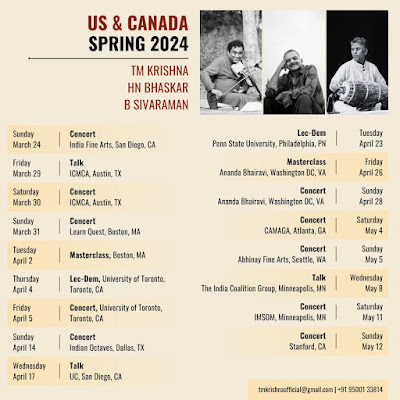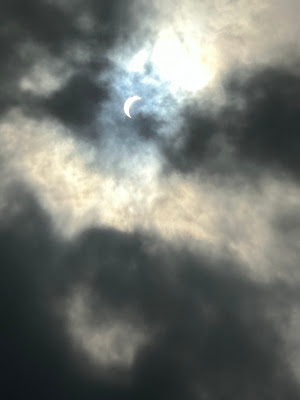It is difficult to define the word passion. It is something that can only be defined through experience.
Imagine an eighty-nine-year-old man, who has dedicated his life in pursuit of unravelling the mysteries of the universe and has reached the pinnacle of his profession, standing before a captivated audience. His words flow effortlessly for an hour, each sentence delivered with conviction and expertise. His body might have been frail but his fervor for the subject is such that he declares his readiness to continue for hours more. In that moment, it becomes clear to all present: “Passion is the inexhaustible fuel that drives excellence."
That is what passion is. But I do not have to imagine this scenario because I was part of the audience. The speaker was Dr. James Pebbles, the 2019 Nobel Prize winner in Physics and the occasion was ‘The Steven Weinberg Memorial Lecture’ at the University of Texas, Austin.
Dr. Steven Weinberg was one of the foremost theoretical physicists and was the winner of the 1979 Nobel Prize in Physics. After stints in many of the leading universities in the US, he moved to University of Austin in 1982 and was instrumental in the setting up of the theoretical physics group at the university. He passed away in 2021 and to honor him the university established ‘The Steven Weinberg Memorial Lecture’ series. This lecture is held in the spring every other year and the speaker is awarded the Steven Weinberg Medal.
The first of these lectures were held in March of 2022 and the speaker was Dr. Frank Wilczek, a colleague of Dr. Weinberg and a Nobel Laureate himself. The second lecture was by Dr. Peebles and was the one I was fortunate to attend. In this lecture, Dr. Peebles recounted his career, highlighting the key achievements.
Dr. Peebles was born in Canada and earned his bachelor’s degree in science from University of Manitoba. He moved to Princeton University to continue his education. He received his PhD in physics in 1962 under the mentorship of Dr. Robert Dicke and has remained there ever since. He is currently the Albert Einstein Professor in science and a Professor Emeritus at the university.
In the 1960s, there was observational evidence that the galaxies were moving away from each other but Big Bang theory for the formation of the universe was not fully accepted. Dr. Dicke and his group worked on a theory that if the universe was expanding, then it must have been much smaller, denser, and hotter earlier. If that were the case, the thermal radiation from that time should be observable as background radiation. Dr. Dicke advised Dr. Peebles that he take up the research to theoretically prove this hypothesis while assigning the actual determination of this background radiation to others in the group. This became the lifelong mission of Dr. Peebles.
He continued to advance our understanding on the formation of universe with his many papers. He put forward the theory that galaxies would not have been able to form until the universe expanded and cooled enough. He wrote a paper on the effect of the temperature of the universe on the amount of Helium produced. He was able to prove with his theoretical calculations that known matter is only five percent of the content of the universe and the other ninety five percent comprised of dark matter and dark energy. Today each of his theories have been taken up for detailed research and have been instrumental in furthering our knowledge of the universe.
Throughout his lecture, Dr. Peebles acknowledged the contributions of his mentors, his peers, and his students. To the students in the audience, he stressed that improving the known is as important is finding something totally new. The latter is a high-risk, high-reward game that is more attractive, but the former would provide the stability. He also encouraged them to devote a portion of their time to think out of the box.
His lecture was laced with self-deprecatory humor and was presented in a way that everyone could understand. He explained the expansion of the universe akin to that of a balloon blown up and how the expansion would be seen from different spots on the surface of the balloon. To explain the importance of boundary conditions, he used two empty water bottles of different sizes and explained how blowing into them produced sounds of shorter and longer wavelengths and frequencies.
It was heartening to see that the auditorium was full on a weekday afternoon. The audience was an eclectic group comprising of professors, students, and general public. And the lecture impressed everyone in the audience and elicited a standing ovation.
My son is an astronomy student and has a specific interest in cosmic radiation. So, the work of Dr. Peebles was something closer home and to hear him say that there is much more to be done was reaffirming my son’s choice of study. I may not have understood everything but still, it was truly an inspiring lecture. I thank University of Austin for making the event accessible for general public.
Congratulations Dr. Peebles on being conferred the Steven Weinberg Memorial Lecture medal. It was an honor to listen to you.
- Faculty Page of Dr. Peebles - https://phy.princeton.edu/people/p-james-peebles
- 2019 Nobel Prize in Physics Lecture - https://www.nobelprize.org/prizes/physics/2019/peebles/lecture/
- UT Austin – Weinberg Memorial Lecture - https://weinberg.utexas.edu/events/series/weinberg-memorial-lecture
- The inaugural Weinberg Memorial Lecture - https://youtu.be/30QQvbCfOAo?si=wRHI0a1n2Yyl4as7





















